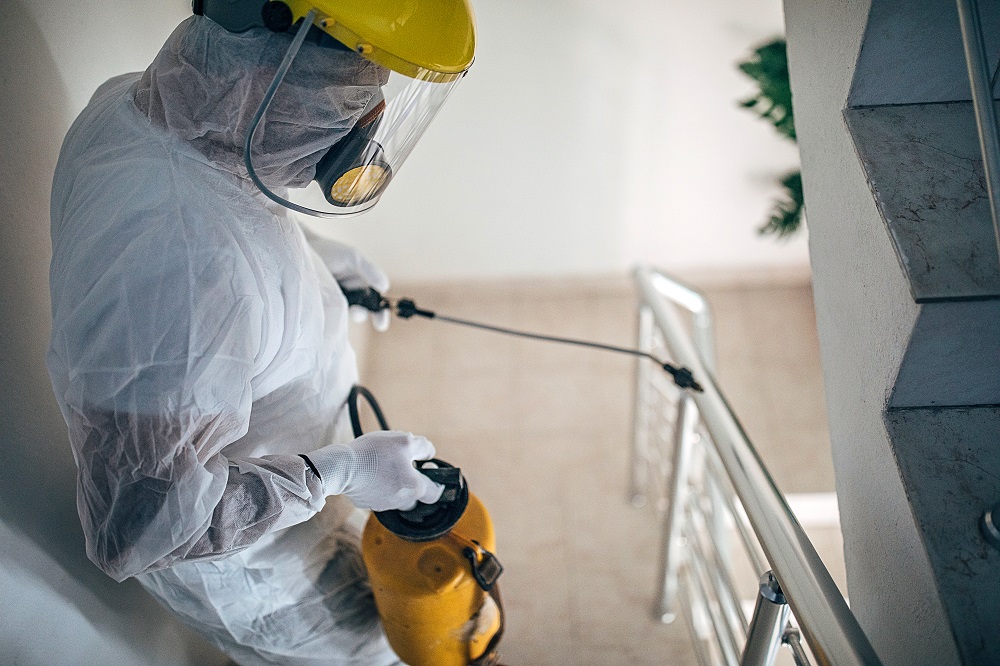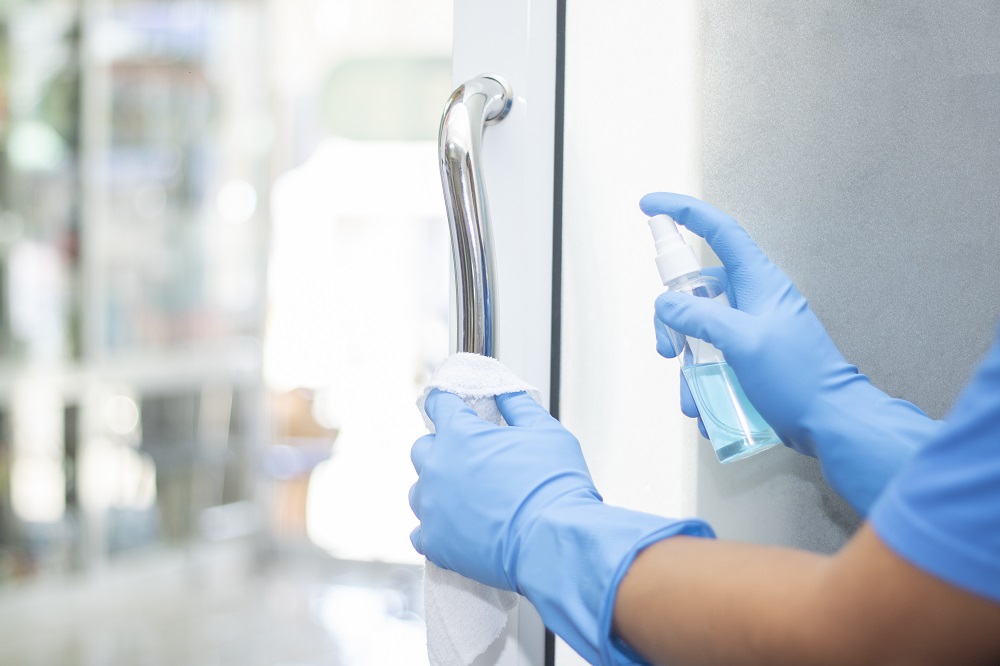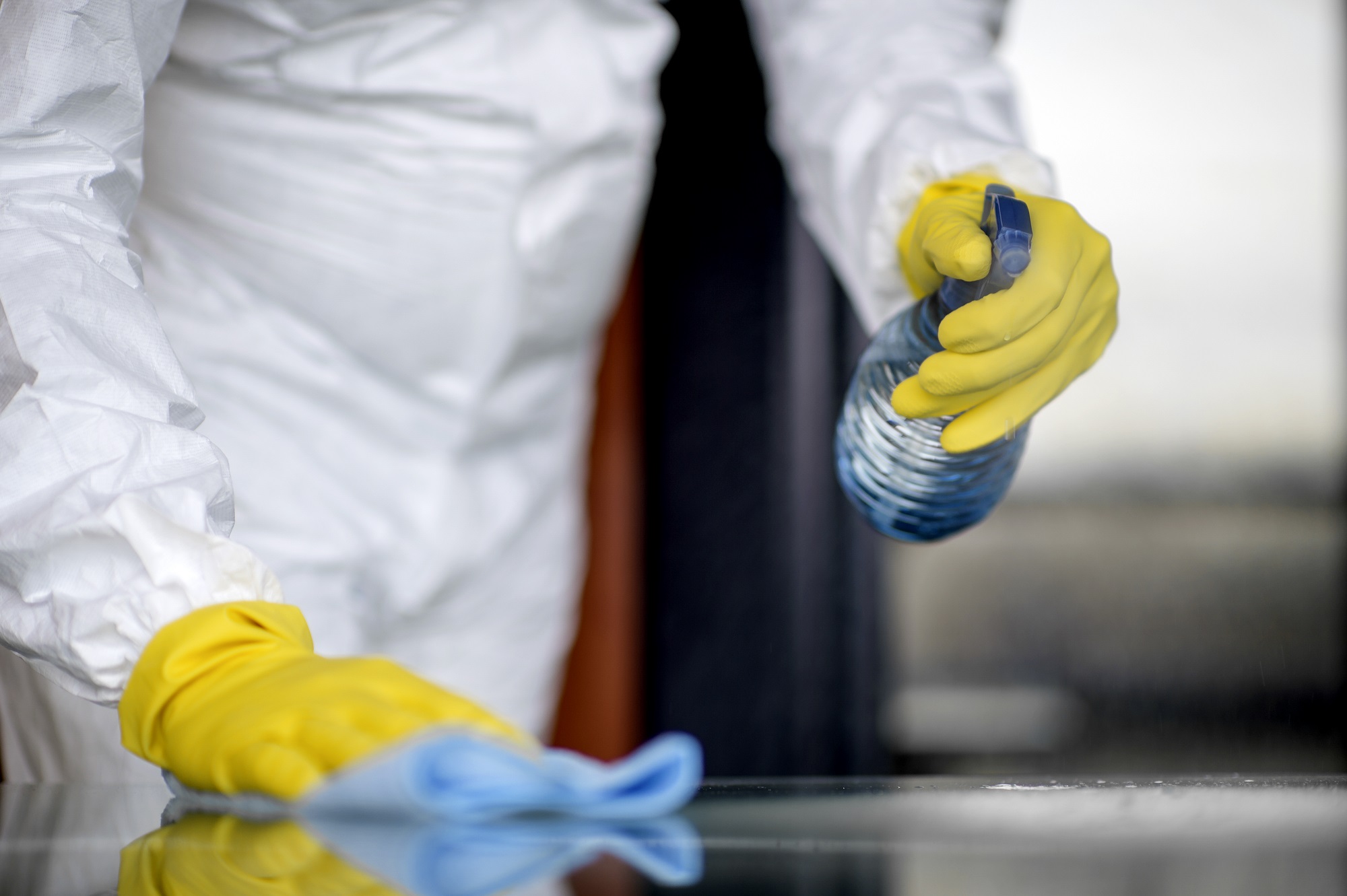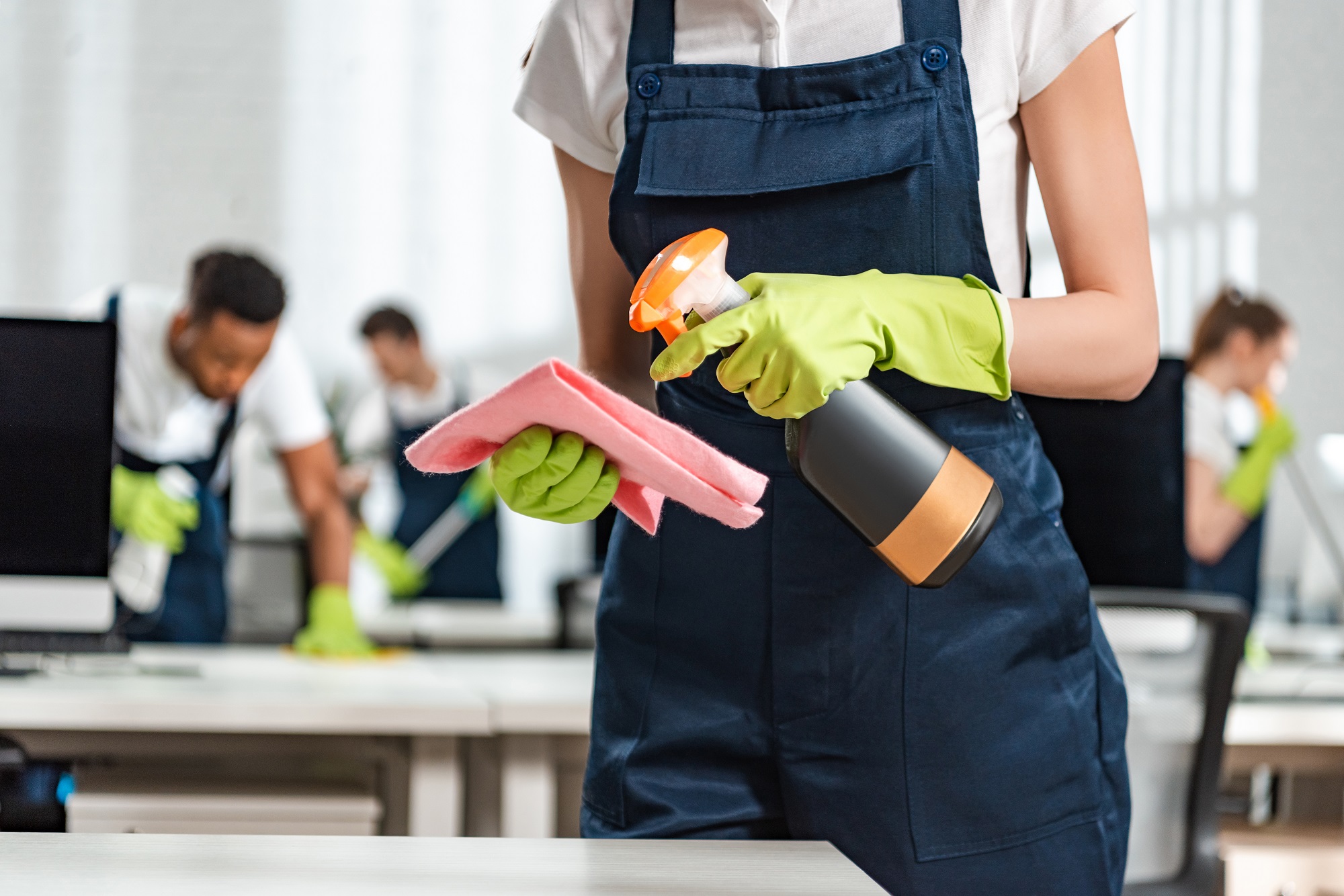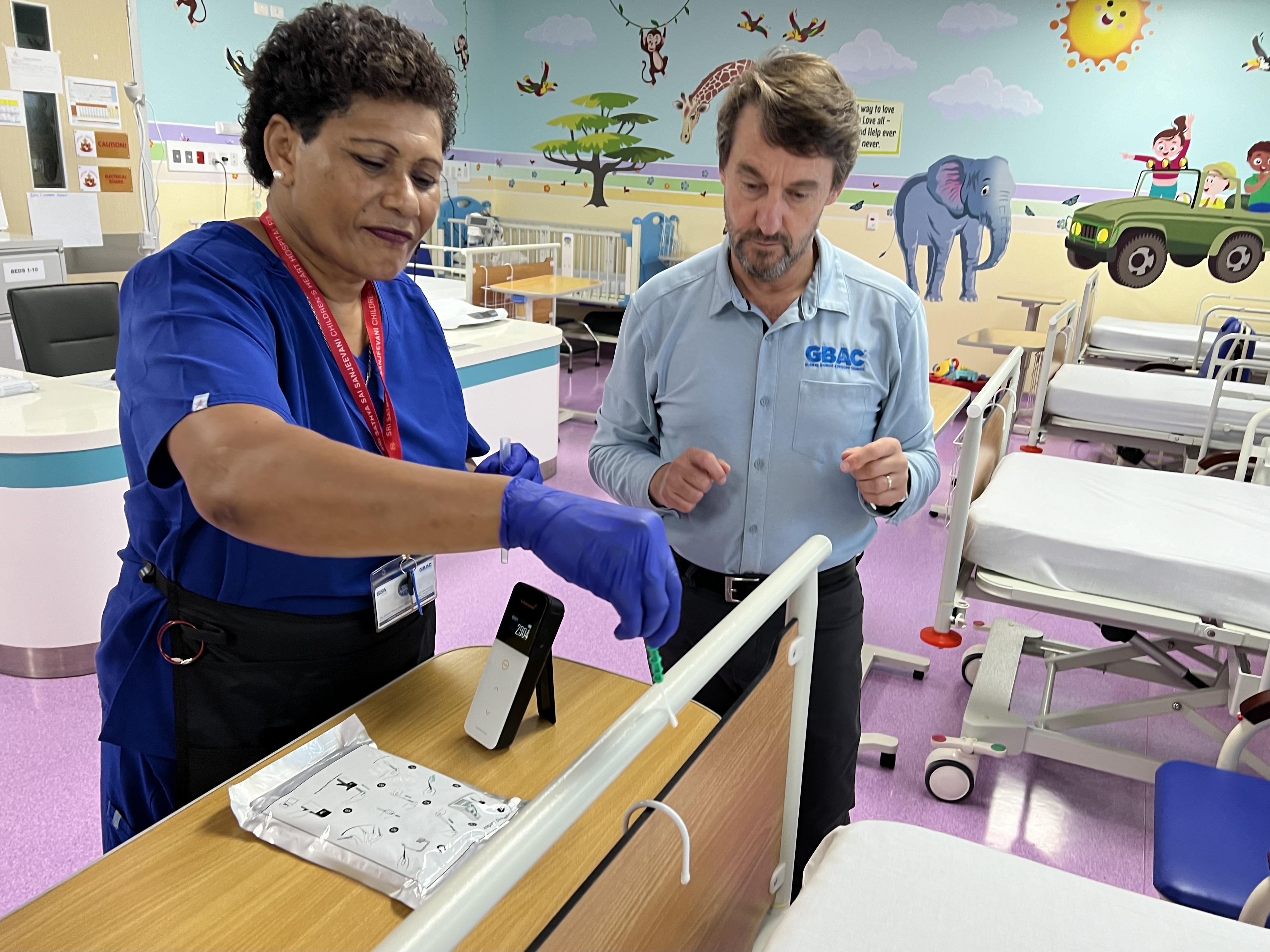
When cleaning industry veteran RJ Patel first walked into the Sri Sathya Sai Sanjeevani Children’s Hospital in Suva, Fiji, he quickly noticed the absence of up-to-date cleaning and hygiene equipment – a concern given the hospital’s vital role in treating children with congenital heart disease.
Although the hospital’s buildings and amenities were impressive, its cleaning teams lacked quality cleaning tools, as well as ATP meters to measure cleanliness of hospital equipment and surfaces.
“Until we arrived, they didn’t know the role that microfibre can play in helping hospitals boost infection prevention and worker safety,” says Patel, the president of PCT Clean in Kennesaw, Georgia, and past chair of the ISSA Residential Cleaning Council in the United States.
“We demonstrated how to use an electrostatic sprayer and taught them how to measure cleanliness using an ATP meter in our hands-on workshops. Everything we shared was new to them and it was obvious that the hospital cleaners and staff really wanted more education and training on better cleaning practices.”
In October, Patel travelled to Fiji with fellow ISSA members Dr Gavin Macgregor-Skinner, senior director for the Global Biorisk Advisory Council (GBAC), and Gosia Baran, owner of Helping Hands Cleaning Services in Chicago, Illinois.
They conducted ISSA Cleaning for Health workshops for hospital staff, hospital cleaning company contractors (Eagle Cleaning Services and Hygiene & Sanitization Services – Fiji, both members of ISSA) covering cleaning, disinfecting, and infection-prevention strategies based on ISSA training methodologies. The trio also facilitated a hospital assessment at the Sri Sathya Sai Sanjeevani facility for the GBAC STAR facility accreditation program.
The Suva children’s hospital, which opened in April 2022, is part of an international network of specialty hospitals and medical centres funded and managed by the Sai Global Federation of Foundations, which delivers a mission of service and spirituality across 33 countries.
The group’s spiritual leader, Sadguru Sri Madhusudan Sai, believes the key to bringing respite to underprivileged children is through free healthcare, education and nutrition.
Patel, who has volunteered extensively with the foundation through its Indian programs, says the aim at the children’s hospital in Fiji is to be a health and hygiene role model for Fiji, as well as all South Pacific Island nations and their healthcare systems.
“We want this hospital to be a leader,” he says.
“There’s a huge challenge with congenital heart disease in Fiji that is a consequence of poor nutrition. Children are born with this defect and without proper treatment they die young – as teens or young adults.”
Saving lives
The Sri Sathya Sai Sanjeevani Children’s Hospital in Suva is the South Pacific’s first state-of-the-art paediatric cardiac hospital where surgeries, treatments and services are free. More than 240 life-saving heart surgeries have been performed at the facility.
Despite the hospital’s ground-breaking work, hospital and cleaning staff had been struggling with accessing tools, equipment, cleaning resources and training to international industry best standards.
Dr Macgregor-Skinner reports that initial discussions with the hospital’s cleaning team revealed that they had not received formal training in health facility cleaning and sometimes watched YouTube videos to learn more about cleaning techniques. Hearing this, he knew there was an opportunity for ISSA master trainers to help the facility adopt state-of-the-art cleaning practices and institute a train-the-trainer program.
“In any hospital, insufficient cleaning practices can weaken infection prevention and control programs and potentially increase risk of infection from contaminated equipment and the environment,” he says.
“It is important that the hospital facility and equipment are cleaned properly to prevent such infection and that we use the tools available to measure the level of cleanliness.”
Since the hospital’s facility assessments and training assistance, huge gains have been achieved. The Sri Sathya Sai Sanjeevani Children’s Hospital recently became the first hospital in Fiji to receive ISSA’S GBAC STAR facility accreditation, verifying that the hospital has demonstrated that a comprehensive program is in place supporting high-performance cleaning and maintenance regimen for the built environment.
In comments to The Fiji Times, hospital director Dr Krupali Tappoo said the facility was “truly humbled to have received this global accreditation” from GBAC.
The GBAC STAR accreditation certifies that a hospital, healthcare facility or other business has committed to having:
- established and maintained a cleaning, disinfection and infectious disease-prevention program to minimise risks associated with infectious agents
- proper cleaning protocols and work practices in place to combat biological hazards
- cleaning professionals who are trained in outbreak and infectious disease prevention and response.
Dr Macgregor-Skinner says ISSA educators will offer ongoing training for cleaning staff at the Suva hospital to ensure that it maintains and improves its cleaning standards while offering a safe environment for the hospital’s life-saving work.
The ISSA team will adopt a “train-the-trainer” program structure to train and certify hospital staff and cleaning professionals so that they can successfully implement a quality training program for their organisations.
Making a difference
Baran says it has been a privilege to provide Fijian cleaners with best-practice cleaning techniques that will contribute to improving the health of children in the South Pacific nation.
She has no doubt that upgrading cleaners’ skills and equipping them with better cleaning tools will help them improve the hospital’s environment and support better health outcomes for more children.
“It’s critical for all of us to work as a team in order to provide training on the highest standards and practices for cleaning,” she says.
“The hospital has recently been built and it’s beautiful. However, it’s important for cleaners to work smarter rather than harder.”
In addition to her role at Helping Hands, Baran has supported a free medical centre for women and children in Clarksdale, Mississippi, that is part of the Sai Global Federation of Foundations’ network.
“It’s been an eye-opener to me and I want to help people in need, and especially the children in Fiji with congenital heart disease,” Baran says.
“I have two children myself, and I can’t imagine something like that happening to my own children. When I started Helping Hands, it was my mission to give support to others and I can do this on a larger scale beyond the United States through Sai Global.”
Following the successful Fijian visit, Dr Macgregor-Skinner has no doubt that ISSA’s GBAC STAR cleaning for health model can be rolled out in other island nations that find it challenging to access state-of-the-art information and materials, as well as in remote and rural hospitals in Australia and elsewhere.
“GBAC STAR is not about a pass or a fail, it’s about continuous improvement and making sure hospitals and other facilities come up to the best industry standards,” he says.
“Understanding how to improve under-resourced facilities in challenging environments can also help us to identify innovation opportunities that can be used by all.”
While donations can help deliver short-term help in these settings, he hopes a sustainable, business-driven supply solution can be developed.
For Patel, his work in India and Fiji spurs his motivation to help others.
“Regardless of people’s socio-economic situation, they deserve quality healthcare,” he says.
“I’ve been cleaning all my life, and what a privilege it is to be able to take what I’ve been doing every day and make a difference in the world. Fiji is just the beginning – we’re going to spread this love all over the world.”
This article first appeared in the November/December issue of INCLEAN magazine.
The Global Biorisk Advisory Council (GBAC), a division of ISSA, helps organisations demonstrate their commitment to protecting the health and well-being of their customers and employees safely, responsibly, and sustainably.


